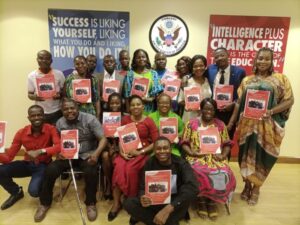CE International Celebrates Social-Emotional Learning Day
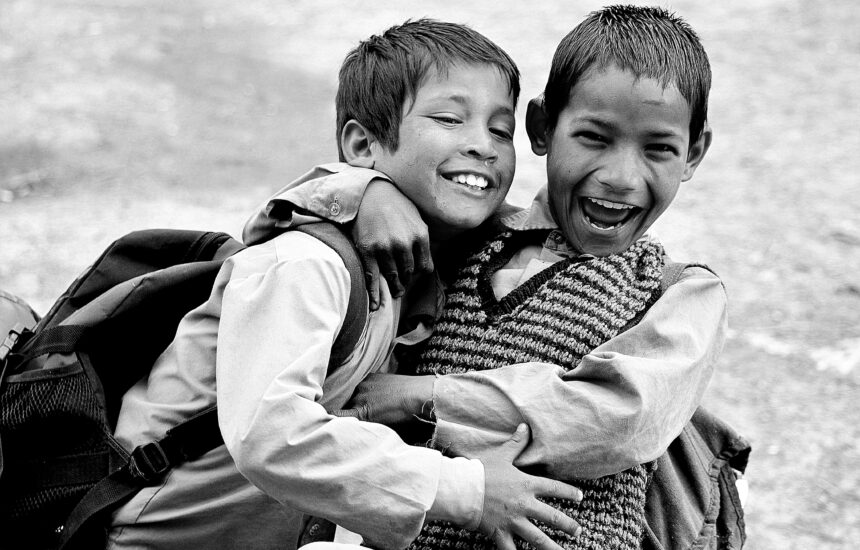

Today, Childhood Education International is celebrating International Social-Emotional Learning Day.
Social-emotional learning (SEL) is an important piece of the puzzle in education and helps create an enabling environment for children and adults to grow and effectively develop.
Through SEL, educators work with students to help them develop the lifelong skills, attitudes, and competencies to understand and manage emotions, regulate behavior, cope with stress, have empathy and tolerance, make responsible decisions, solve problems, and form healthy relationships.
This enables children to learn other school subjects and grow successfully as students, friends, and world citizens. When we provide SEL, we support the well-being and protective factors for children and adults.
At CE International, we advocate for the whole growth and well-being of every child around the world, and that means incorporating SEL as a component of learning and development. We’re working with country partners to help strengthen SEL skills in adults and provide social-emotional growth opportunities in schools in various parts of the world.
Educators in Ukraine play a critical role in supporting and providing hope for young people experiencing trauma, loss, and disruptions to daily routines due to the war.
CE International’s Center for Professional Learning is working with educators in Ukraine to support their well-being and provide professional learning opportunities related to SEL, trauma-informed practice, holistic pedagogies, and English language teaching.
“They say that teaching is rewarding… It really is when despite all the challenges, you have a chance to see the happy and sincere smiles of your students due to a variety of SEL techniques,” said Olena Hladka, an instructor at Kryvyi Rih State Pedagogical University in Ukraine and participant in CPL’s English Language Teacher professional development community of practice.
Olena shared a screenshot from a recent SEL lesson with some of her students:
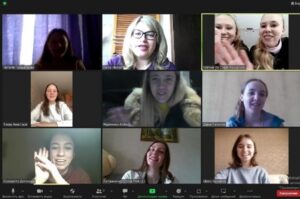
In Serbia, CE International is partnering with the Center for Interactive Pedagogy (CIP) to create a social-emotional character development program. Through a community of practice, teachers share and learn together, as well as develop new strategies to help students learn skills such as self-management, self-awareness, greater empathy, and positive relationships with each other and with school staff.
The principal at an elementary school in Stepojevac, Serbia, taking part in the SEL program shared these thoughts on the importance of SEL: “We desire to improve the key competencies and skills that we need to support the development of personality and social-emotional skills in our students, empowering students to understand the elements of social justice, encouraging critical thinking in students, and eliminating prejudices related to inclusion…
“Our goal is to create such an environment in the school that would be stimulating for students, teachers, and the educational process… We believe that understanding values such as social justice, communication, cooperation, and exchange of experience can be beneficial for students’ development, and essential for life in general. We want to promote examples of good practice – what is good and stimulating in our work, the successes of our students – and thus become a model institution.”
Teachers in Stepojevac, Serbia, recently met to discuss the social-emotional needs and strengths of their students:
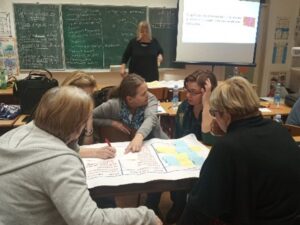
Through the Quality Holistic Learning (QHL) Project, CE International and QHL Fellows in Kenya, Lebanon, and Niger have been co-creating materials focused on holistic learning – including SEL and psychosocial supports to sustain student and teacher well-being – for educators working in displacement contexts.
As a result of this work, an Open Educational Resource (OER) Library was launched in 2022 which includes professional development materials in Arabic, English, and French.
QHL Project Fellows Hadizatou Amou Ali, Vianney Mpitabavuma, and Yanal Moussa and Project Consultant Sara Kassab also recently published a blog post focused on holistic learning through Harvard University’s Refugee REACH Initiative.
In the post, they write: “Our experiences show that focusing on holistic learning is essential in all contexts, especially when working with students who have been displaced. Holistic learning offers room for students to develop their social and cognitive skills effectively while focusing on the child as a whole. Holistic learning attempts to restore a sense of home and family, essential in helping students to work with their emotions and cultivating empathy between teachers and their students.”
Read the post in English , in Arabic, and in French.
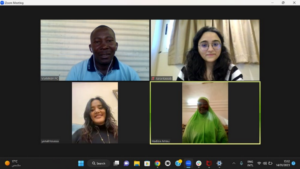
In Côte d’Ivoire, CE International recently partnered with Education and English for You (EEFY) to design and implement an inclusive education training aimed at enabling Ivorian educators to provide an inclusive learning environment and promote an inclusive mindset among students.
In addition to concepts such as Universal Design for Learning and Education Diplomacy, the project focused on social emotional learning.
An educator who took part noted the impact of the project: “The training came to bring a radical and total change in my way of seeing and considering teaching. Today, I see teaching differently and I have enough resources to flourish in my profession. Passion drives me. I show empathy towards the students whom I consider to be part of the act of learning.”
Educators in Côte d’Ivoire came together at the end of the project to share and reflect:
